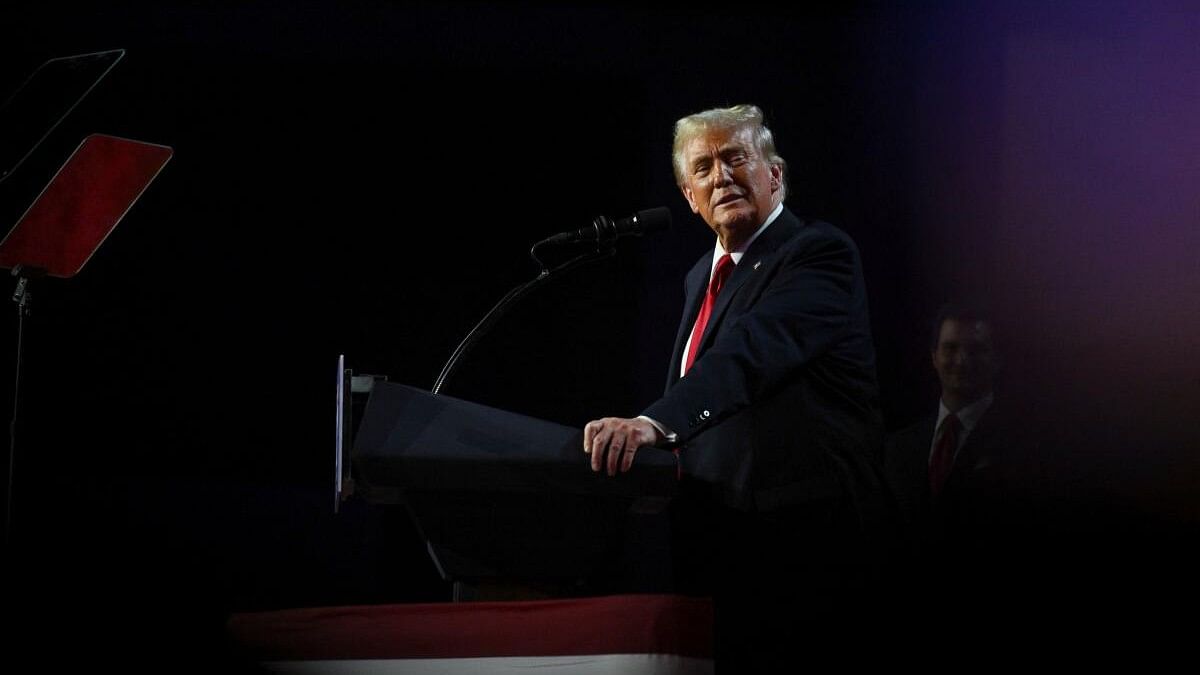
Donald Trump
Credit: Reuters Photo
Donald Trump is all set to become the 47th President of the United States. While he has told supporters to work together to make America great again, and lauded people across all communities coming together, including 'Arab Americans' and 'Muslim Americans'.
However, many are left wondering what Trump's presidency would mean for the US immigration policy -- the result of which is the heterogeneous population of the country.
During his 2024 presidential campaign, Donald Trump has expressed varying positions on green card policies:
Green Cards for Foreign Graduates
In June 2024, Trump proposed granting green cards to foreign students graduating from US colleges, including junior colleges, to retain skilled talent within the country. He suggested that these graduates should automatically receive green cards to remain and work in the US.
Potential Restrictions on Legal Immigration
Despite the above proposal, reports indicate that Trump's advisers are planning to limit legal immigration if he wins the presidency again. Plans include reinstating a travel ban on several Muslim-majority countries and halting refugee resettlements. Measures may also target employment-based immigration, such as pausing green card applications for categories with large backlogs, affecting businesses that rely on foreign workers.
Donald Trump, in his earlier stint as President, supported the RAISE Act, which aimed to cut legal immigration by half, reducing the number of green cards from more than 1 million to about 500,000 annually.
How this might impact Indians:
Donald Trump’s 2024 immigration proposals, if enacted, could have significant impacts on Indian nationals, who make up a substantial portion of green card applicants and skilled foreign workers in the US.
Green Cards for Foreign Graduates:
This policy could benefit Indian students pursuing degrees in the US, by offering them an automatic pathway to a green card after graduation. Many Indian students, especially those in STEM fields, go to the US for higher education and hope to remain in the country to work. An automatic green card could remove the need for lengthy and uncertain visa processes like the H-1B and allow Indian graduates immediate work authorization and stability.
Restrictions on Employment-Based Immigration:
Trump’s potential restrictions on green card backlogs and other employment-based immigration categories could impact Indian nationals adversely. Indians face some of the longest wait times in employment-based green card backlogs, with some waiting decades due to country-based caps. If applications in these categories were paused or further limited, it would add to the uncertainty and delay for thousands of Indian professionals working in the US, affecting both new applicants and those already in the backlog.
Reinstating Travel Bans and Refugee Resettlements:
While a travel ban may not directly impact India, a generally more restrictive immigration environment could make it harder for Indian nationals to move to the US through family-based or humanitarian pathways. A focus on tightening entry processes could also impact those applying for business, tourism, or educational visas.
RAISE Act and Family-Based Immigration:
Should Trump revive the RAISE Act's family-based restrictions, Indian citizens hoping to sponsor family members for green cards may face limitations. Many Indians utilize family-based categories to bring parents, siblings, or adult children to the US Under the RAISE Act model, sponsorship options would be narrowed to spouses and minor children, impacting family reunification.
In April this year it was reported that over a million Indians were waiting for the highly skilled workers' visas.
(This article has been generated using AI, with inputs from DH Web Desk. It has been edited by DH Web Desk)